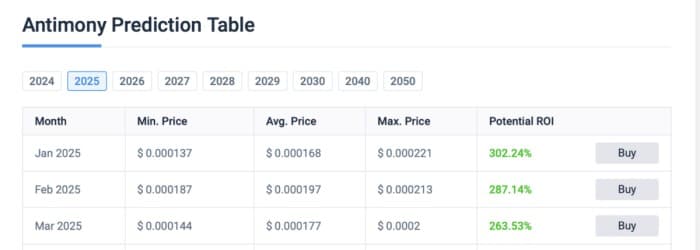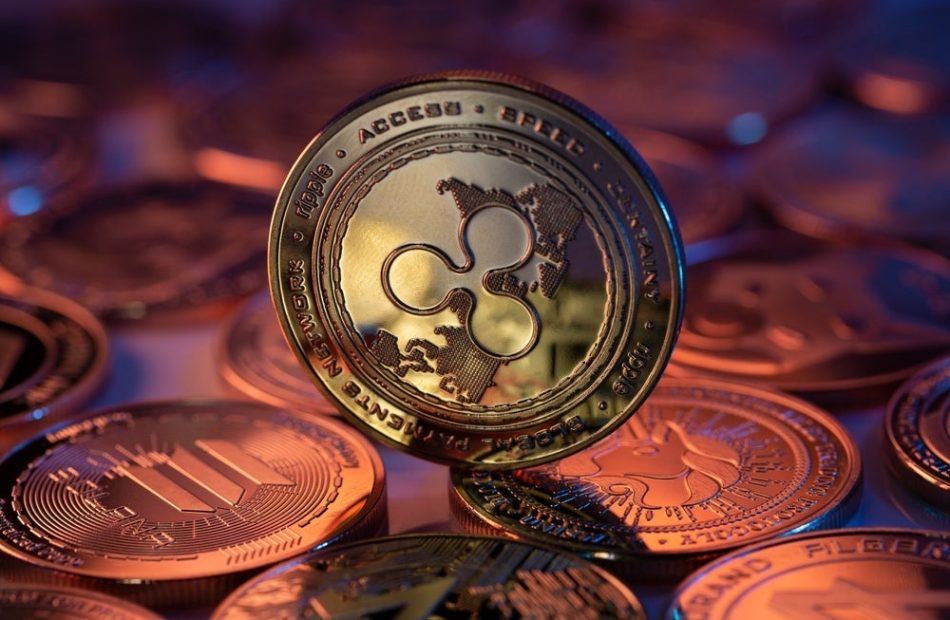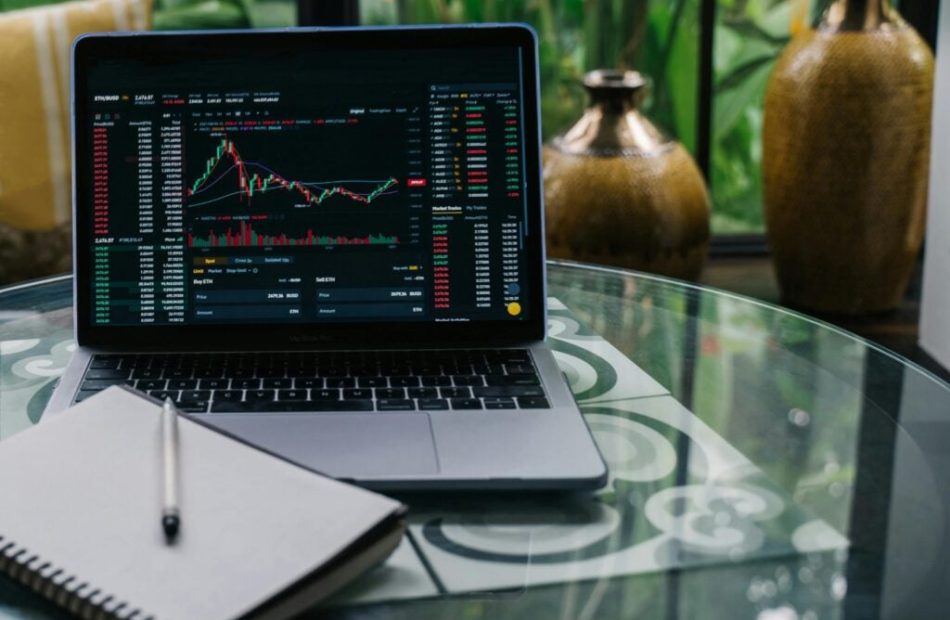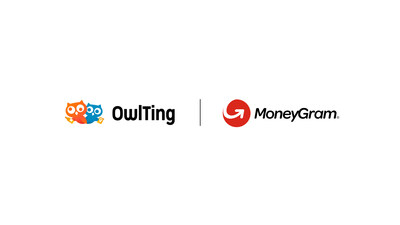Bitcoin Dumped And Recovered In South Korea Amid Political Turmoil — An Arbitrage Opportunity That Wasn't?
Cryptocurrencies traded at big discounts in the South Korean market Tuesday but recovered amid intense political drama in the East Asian nation.
What happened: Major coins like Bitcoin BTC/USD and Ethereum ETH/USD sharply fell in value on Upbit, South Korea’s largest cryptocurrency exchange.
Bitcoin plunged as low as $71,800 after President Yoon Suk Yeol imposed martial law in the country, even though it traded around 95,500 on Coinbase, the largest digital assets exchange in the U.S.
Similarly, Ethereum dropped to $2,700 on Upbit while trading over $3,600 on Coinbase.
The Korea Premium Index, which measures the percentage difference between the market prices of Korean exchanges and other exchanges, plummeted to -14.67, according to on-chain analytics firm CryptoQuant, indicating that retail investors were selling at a lower price than the average market price.
See Also: CleanSpark CEO Zach Bradford Explains Why The Company Is Betting on Bitcoin Mining, Not Buying
However, what should have been a profitable arbitrage opportunity did not last long, as Bitcoin returned to $95,424 on South Korean exchange Upbit as of this writing, showing a narrow discount from the cryptocurrency’s global price of $95,857. Ethereum also recovered to $3,700.
The recovery followed President Yoon’s U-turn after he withdrew the martial law diktat after facing parliamentary opposition.
Why It Matters: Taking note of the developments, noted analyst and CryptoQuant CEO Ki Young Ju wondered why Bitcoin was selling off in times of political instability.
“Why did the people selling now even buy Bitcoin in the first place?’ he asked.
These developments were opposite to the popular “Kimchi Premium” phenomenon, where prices of cryptocurrencies on Korean exchanges can trade at a premium of as much as 30% above their international counterparts.
Sam Bankman-Fried, the founder of Alameda Research and the now-defunct FTX exchange, famously exploited this difference, reportedly earning up to a million dollars daily in 2019 and 2020.
Price Action: At the time of writing, Bitcoin was trading at $95,897.38, down 0.29% in the last 24 hours, according to data from Benzinga Pro.
Image via Shutterstock
Read Next:
Market News and Data brought to you by Benzinga APIs
© 2024 Benzinga.com. Benzinga does not provide investment advice. All rights reserved.
RENTOKIL SHAREHOLDER ALERT BY FORMER LOUISIANA ATTORNEY GENERAL: KAHN SWICK & FOTI, LLC REMINDS INVESTORS WITH LOSSES IN EXCESS OF $100,000 of Lead Plaintiff Deadline in Class Action Lawsuit Against Rentokil Initial plc – RTO
NEW ORLEANS, Dec. 03, 2024 (GLOBE NEWSWIRE) — Kahn Swick & Foti, LLC (“KSF”) and KSF partner, former Attorney General of Louisiana, Charles C. Foti, Jr., remind investors that they have until January 27, 2025 to file lead plaintiff applications in a securities class action lawsuit against Rentokil Initial plc (the “Company”) RTO, if they purchased the Company’s American Depositary Shares (“ADSs”) between December 1, 2023 and September 10, 2024, inclusive (the “Class Period”). This action is pending in the United States District Court for the Western District of Tennessee.
What You May Do
If you purchased ADSs of Rentokil and would like to discuss your legal rights and how this case might affect you and your right to recover for your economic loss, you may, without obligation or cost to you, contact KSF Managing Partner Lewis Kahn toll-free at 1-877-515-1850 or via email (lewis.kahn@ksfcounsel.com), or visit https://www.ksfcounsel.com/cases/nyse-rto/ to learn more. If you wish to serve as a lead plaintiff in this class action, you must petition the Court by January 27, 2025.
About the Lawsuit
Rentokil and certain of its executives are charged with failing to disclose material information during the Class Period, violating federal securities laws.
On September 11, 2024, pre-market, the Company provided an unscheduled “Trading Update,” announcing that it now expected only 1% organic revenue growth in North America for the second half of 2024—well below the Company’s prior guidance, also disclosing that “While we saw some positive momentum in North America sales activity at the end of the second quarter, the trading performance in July and August was lower than anticipated. There has also been some modest disruption to organic growth from branch integration.”
On this news, the price of Rentokil ADSs fell by over 21%, from a closing price of $31.60 per ADS on September 10, 2024, to a closing price of $24.95 per ADS on September 11, 2024.
The case is Laborers Local #235 Pension Fund v. Rentokil Initial plc, et al., No. 24-cv-2932.
About Kahn Swick & Foti, LLC
KSF, whose partners include former Louisiana Attorney General Charles C. Foti, Jr., is one of the nation’s premier boutique securities litigation law firms. KSF serves a variety of clients – including public institutional investors, hedge funds, money managers and retail investors – in seeking recoveries for investment losses emanating from corporate fraud or malfeasance by publicly traded companies. KSF has offices in New York, Delaware, California, Louisiana, Chicago and New Jersey.
To learn more about KSF, you may visit www.ksfcounsel.com.
Contact:
Kahn Swick & Foti, LLC
Lewis Kahn, Managing Partner
lewis.kahn@ksfcounsel.com
1-877-515-1850
1100 Poydras St., Suite 960
New Orleans, LA 70163

Market News and Data brought to you by Benzinga APIs
© 2024 Benzinga.com. Benzinga does not provide investment advice. All rights reserved.
China Is Weaponizing This Metal Crucial To The U.S. Military
China’s dominance in Rare Earth metals is hard to ignore, But for one lesser-known metal that fuels the U.S. defense sector, China’s grip is so tight that the U.S. now finds itself desperately scrambling to discover and develop friendly new resources before supply is squeezed to nothing.
This rare metal saved the Allies in WWII, and it has very suddenly reclaimed its critical status on three continents, leading to a recent 200%+ surge in spot prices.
Meet antimony, the most important metal you’ve never heard of.
During WWII, antimony was vital for producing ammunition, tungsten steel, and hardening lead bullets.
America’s enemies control almost all the world’s antimony reserves.
And now they are weaponizing it.
And despite predictions of wild price increases of over 300% by January 2025, there’s light at the end of the tunnel for the U.S. and its allies, as a group of miners step in to boost supply in Australia, the European Union and North America.
“This is it. The world is already at war, and China has cut off North America’s main antimony supply,” says Military Metals Corp. CEO Scott Eldridge, a 17-year veteran of the Canadian mining sector.
Military Metals Corp. (CSE:MILI; OTCQB:MILIF) has been busy scooping up antimony assets this year and is planning to help North America get back into the antimony game quickly by utilizing past producing mines in North America and Europe with large historical resources.
At the moment, China accounts for around half of all global antimony production, and as of the end of last year, it supplied 60% of U.S. antimony imports.
As for the mines falling outside China’s control, many of them send their antimony to China for processing–meaning China’s hands are on most of the world’s antimony supply.
But two historical antimony projects recently acquired by Canada-based Military Metals Corp. (CSE:MILI; OTCQB:MILIF) could put the United States on more solid critical metals footing.
Right as demand is soaring at an all-time high.
The U.S. Army, for one, is on an artillery shell production binge, seeking to ramp up output from 4,000 units/month to 100,000 units/month by the end of the year. They’re preparing for war.
And it all requires antimony, and China is blocking supply with export restrictions implemented in September this year.
The antimony supply squeeze is in full force.
And a ~200% surge in antimony prices “has been almost entirely supply driven”, says CRU analyst Chetan Soni. “The surge has been almost entirely supply driven. It is not clear when the supply constraints will improve,” Soni told Reuters in May of this year.
Primior to Launch Gaia – A Revolutionary Platform for Asset Tokenization
Irvine, California, Dec. 03, 2024 (GLOBE NEWSWIRE) — The global digital asset market reached $1.3 trillion in 2023, significantly shifting toward tokenized investments. Primior is excited to announce the development of Gaia, a revolutionary platform designed to transform investment in real-world assets (RWAs). Leveraging advanced blockchain and AI technologies, Gaia aims to democratize access to investment opportunities, enabling fractional ownership, enhanced liquidity, and global participation.
Introducing Gaia by Primior: Unlock the power of tokenized asset investment with cutting-edge blockchain technology
Beyond real estate, Gaia will offer investment opportunities in private equity, gold, bonds, and other RWAs. By breaking down traditional barriers, Gaia is set to provide a secure and efficient investment experience for both asset sponsors and investors.
Transforming Investment Through Cutting-Edge Technology
The development of Gaia focuses on integrating blockchain and AI technologies to create a seamless, compliant infrastructure for asset tokenization. Key features include:
- Smart contract automation for regulatory compliance and transaction efficiency.
- Cross-border payment systems for global accessibility.
- Real-time cap table and portfolio management tools for streamlined operations.
- Multi-layer security architecture to ensure robust protection of investor and sponsor assets.
Building on its proven track record of tokenizing $52 million in U.S. real estate assets across two successful raises via the USP token, Primior is creating Gaia as a next-generation marketplace that bridges traditional and digital investment ecosystems.
A Marketplace for Investors and Sponsors
Gaia is designed to serve the needs of both asset sponsors and investors:
- For sponsors, Gaia offers a platform to tokenize equity, raise capital, and manage investor relations efficiently. By leveraging blockchain and AI, it reduces compliance costs and connects sponsors with international investors.
- For investors, Gaia provides a user-friendly marketplace to invest in tokenized assets with no minimum thresholds. A future licensed secondary market will enable unrestricted trading, enhancing liquidity and flexibility.
Inspired by the Success of USP
Gaia’s development builds upon the success of Primior’s USP token, which provides fractional ownership of a professionally managed U.S. real estate portfolio. Powered by the Ethereum blockchain, USP has already democratized real estate investment, offering a scalable and secure way to hedge against inflation and achieve diversification.
A Vision for the Future of Investment
Market projections indicate that asset tokenization could unlock $16.1 trillion in previously illiquid assets by 2030. Gaia positions Primior at the forefront of this transformation, with a focus on regulatory compliance, security, and accessibility.
The development of Gaia represents a significant step toward reshaping how assets are owned and traded, providing new opportunities for investors and sponsors alike. As development progresses, Primior remains committed to delivering innovative solutions that empower global participation in the digital investment landscape.

Media Contact: Andrew Palacios Primior Holdings 800 735 9973 andrew@primior.com
Market News and Data brought to you by Benzinga APIs
© 2024 Benzinga.com. Benzinga does not provide investment advice. All rights reserved.
Sony-Honda EV Dream Collides With Trump-Backed Policy Shift Reality Ahead Of 2026 US Launch
Sony Group Corp SONY and Honda Motor Co Ltd.‘s HMC joint electric vehicle venture faces significant headwinds as it prepares to enter the U.S. market in 2026, amid expected policy changes under President-elect Donald Trump that could reshape the EV landscape.
What Happened: The partnership, Sony Honda Mobility, will unveil its production-ready Afeela sedan prototype at CES 2025 in Las Vegas next month. While the vehicle’s hardware is largely complete, developers are fine-tuning the software-centric features that distinguish it from competitors, according to SHM President Izumi Kawanishi, Nikkei reported on Wednesday.
The timing of Afeela’s launch coincides with potentially major shifts in U.S. auto policy. Trump’s anticipated elimination of the current $7,500 EV tax credit could reduce electric vehicle sales by nearly 30%, according to the National Bureau of Economic Research.
This policy shift has already influenced market dynamics, with Tesla Inc. TSLA shares rallying following Trump’s election victory.
What Happened: The changing landscape has divided industry analysts. Roth MKM analyst Craig Irwin recently raised Tesla’s price target by 347% to $380, suggesting established players might benefit from reduced subsidies. However, newcomers like SHM could face additional challenges beyond the subsidy cuts, including potential tariff increases.
Despite these hurdles, SHM is betting on its unique value proposition. The Afeela features 45 cameras and sensors, an entertainment-focused cabin design, and software that can be updated like a smartphone. The company aims to differentiate itself through Sony’s entertainment and sensor expertise combined with Honda’s automotive manufacturing capabilities.
“All businesses have ups and downs,” Kawanishi noted, emphasizing the venture’s long-term vision. Industry experts suggest annual sales of 30,000 to 40,000 units would be considered successful for the new entrant in a market dominated by Tesla, which controls approximately half of U.S. EV sales.
EV-focused exchange-traded funds, including Invesco Electric Vehicle Metals Commodity Strategy No K-1 ETF EVMT, Amplify Lithium & Battery Technology ETF BATT, KraneShares Electric Vehicles and Future Mobility Index ETF KARS, and Global X Lithium & Battery Tech ETF LIT, have all been trading in the red since Trump’s election victory on Nov. 6.
Read Next:
Image Via Unsplash
Disclaimer: This content was partially produced with the help of AI tools and was reviewed and published by Benzinga editors.
Market News and Data brought to you by Benzinga APIs
© 2024 Benzinga.com. Benzinga does not provide investment advice. All rights reserved.
XRP Becomes Third-Most Valued Crypto — Beats Boeing, Nike In Market Capitalization
XRP XRP/USD continued the upward march Tuesday, becoming the third-largest cryptocurrency by market capitalization after Bitcoin BTC/USD and Ethereum ETH/USD.
What happened: The payment-focused cryptocurrency spiked to $2.84 early in the morning hours, just 19% shy of its all-time high. The rally propelled the market valuation to over $160 billion.
Subsequent correction wiped out some of XRP’s valuation but was enough to knock Tether USDT/USD out of third place among the largest cryptocurrencies by market capitalization.
As of this writing, XRP was valued at $143.59 billion, higher than iconic Wall Street companies like Boeing Co. BA and Nike Inc. NKE.
See Also: CleanSpark CEO Zach Bradford Explains Why The Company Is Betting on Bitcoin Mining, Not Buying
Why It Matters: XRP has been one of the breakout performers of the ongoing cryptocurrency market bull run, leaping 82% over the week and nearly 400% in the last month.
The rally has been broadly supported by Donald Trump’s presidential victory and a slew of bullish triggers specific to XRP’s ecosystem.
Incumbent Securities and Exchange Commission Chair Gary Gensler’s departure, reports of cryptocurrency-friendly Paul Atkins succeeding him, jump in filings for spot exchange-traded funds tied to the cryptocurrency, and the imminent launch of Ripple Labs’ RLUSD stablecoin.
Noted cryptocurrency analyst Michaël van de Poppe called XRP “the prime indicator” of altcoin strength.
“The last time this explosive move happened, it was the start of the altcoin period,” he added.
Price Action: At the time of writing, XRP was trading at $2.53, down 5.93% in the last 24 hours, according to data from Benzinga Pro.
Read Next:
Market News and Data brought to you by Benzinga APIs
© 2024 Benzinga.com. Benzinga does not provide investment advice. All rights reserved.
Celsius Network Founder Alex Mashinsky Pleads Guity To Two Counts Of Fraud, Including Manipulating In-House Crypto's Price
Alex Mashinsky, the disgraced founder and ex-CEO of cryptocurrency lender Celsius Network, admitted guilt to two counts of fraud on Tuesday.
What Happened: Despite his initial plea of not guilty, Mashinsky confessed to two of the seven charges during a hearing before a U.S. District Judge, according to a Reuters report.
The charges included commodities fraud and a scheme to manipulate the price of Celsius CEL/USD, Celsius’ in-house token.
Mashinsky admitted to providing Celsius customers with “false comfort” by falsely claiming in a 2021 interview that Celsius had received regulatory approval for its “Earn” program. He also confessed to not disclosing that he had been selling his CEL holdings, the platform’s in-house token.
“I know what I did was wrong, and I want to try to do whatever I can to make it right,” Mashinsky stated. He agreed not to appeal any sentence of 30 years or less, the maximum sentence for the two counts. His sentencing is scheduled for Apr. 8, 2025.
See Also: MatterFi Introduces Infrastructure To Address Phishing, Cybersecurity Risks In Digital Finance
Influential financial market commentator Peter Schiff said it was “obvious” that Mashinsky was a fraudster. He posted an old clip of his argument with Mashinsky over Bitcoin’s BTC/USD yield-generating potential.
Why It Matters: Mashinsky was charged with seven counts of fraud, conspiracy, and market manipulation in 2023 and subsequently taken into custody.
His arrest followed the collapse of Celsius Network and a Department of Justice inquiry into the company’s downfall. The Securities and Exchange Commission also filed a lawsuit against Mashinsky and Celsius, alleging securities fraud.
Celsius was among several prominent cryptocurrency companies that imploded in 2022. The collapse of Terra LUNA/USD and a downturn in the digital-asset markets left Celsius with a significant deficit in its balance sheet, rendering it unable to handle a surge in customer withdrawal requests. The company applied for bankruptcy protection in 2022.
However, Celsius managed to officially exit bankruptcy in early 2024, beginning a $3 billion repayment to its creditors. This marked the end of an 18-month restructuring process following the approval of the company’s reorganization plan by the Bankruptcy Court for the Southern District of New York.
Photo Courtesy: Web Summit on Flickr
Read Next:
Disclaimer: This content was partially produced with the help of Benzinga Neuro and was reviewed and published by Benzinga editors.
Market News and Data brought to you by Benzinga APIs
© 2024 Benzinga.com. Benzinga does not provide investment advice. All rights reserved.
Palantir Paving The Way For AI Transformation, With Salesforce And Oracle To Follow, Says Dan Ives: The AI Revolution Goes Beyond Magnificent 7
Salesforce Inc. CRM and Palantir Technologies Inc. PLTR are leading what Wedbush Securities Managing Director Dan Ives describes as an “AI revolution” in the enterprise software industry, with Oracle Corp. ORCL set to benefit from the transformation in 2025, Ives said in an interview on Tuesday.
What Happened: Following Salesforce’s latest earnings report, Ives described the quarter as “Goldilocks,” in a CNBC interview highlighting the company’s stronger-than-expected top-line performance and revenue guidance.
Salesforce reported third-quarter revenue of $9.44 billion, with remaining performance obligations up 10%, despite missing bottom-line estimates.
“This is a phenomenal balance of growth,” Ives said, dismissing concerns about the earnings miss. “Right now you want to see them focus on spending, especially when it comes to what they’re building out from an AI perspective.”
Salesforce’s Agent Force initiative could generate “$5-6 billion a year” in revenue, according to Ives, who sees “massive upside” for the company’s stock. The enterprise software giant’s shares closed at $331.43, up 0.13% on Tuesday.
Why It Matters: Meanwhile, Palantir Technologies has emerged as a frontrunner in the AI transformation. The company’s stock surged 6.88% to close at $70.96 after receiving FedRAMP High Authorization for its Federal Cloud Service, expanding its capability to serve U.S. government agencies.
Ives emphasized that the AI revolution extends beyond the “Magnificent Seven” tech giants, affecting various sectors including software, cybersecurity, and storage. “The biggest tech trend in the last 40 to 50 years,” he noted, suggesting investors are comfortable with increased spending as long as companies demonstrate growth and deal flow.
Looking ahead to 2025, Ives sees the AI transformation spreading across the software industry, with Palantir leading the charge followed by Salesforce and Oracle, marking what he calls “a renaissance of growth” for the sector.
Read Next:
Image via Pexels
Disclaimer: This content was partially produced with the help of AI tools and was reviewed and published by Benzinga editors.
Market News and Data brought to you by Benzinga APIs
© 2024 Benzinga.com. Benzinga does not provide investment advice. All rights reserved.
OwlTing Expands Integration with MoneyGram for Global USDC Stablecoin On/Off-Ramp
TAIPEI, Dec. 3, 2024 /PRNewswire/ — OwlTing Group (“Company”), a global blockchain fintech company, today announced that its unhosted digital wallet solution, OwlPay® Wallet Pro (the “Wallet”) has integrated with MoneyGram International Inc. (“MoneyGram”), a leading global fintech company that connects the world’s communities, to enhance the Wallet’s bankless on and off-ramp capabilities for seamless conversions between fiat currencies and USDC stablecoin.
Through this integration, OwlPay® Wallet Pro now offers its users the functionality to cash-in from local fiat currencies to USDC stablecoin in over 30 countries[1] globally across nearly 50,000 MoneyGram locations. The Wallet users will also be able to cash-out from USDC stablecoin to fiat currencies in over 170 countries at more than 375,000 MoneyGram locations. This integration is powered by MoneyGram Access™, the first-of-its-kind global on/off-ramp service for digital asset wallets.
OwlPay® Wallet Pro also welcomes a significant update. It has moved all individual wallets to the unhosted wallet model, allowing users most access to their passphrases. This enhances user security and accessibility. The updated Wallet is now available for iOS and Android on Apple’s App Store and Google Play Store.
The Company aims to address long-standing issues such as high fees, slow processing times, and limited access to traditional financial services of the cross-border remittance market and will play a vital role in providing a faster, secure, and cost-effective payment solution. While MoneyGram has reduced its average fee for traditional remittance customers to under 3%, paving the way to meet the United Nation’s 10.c target[2] to reduce the costs of migrant remittance transfers to less than 3%, the World Bank estimates the remittance industry’s global average cost to be 6.65%[3].
“We’re seeing a surge of evolving needs from businesses that utilize international payments and from immigrants that send money home to help support their loved ones,” said Darren Wang, Founder and CEO at OwlTing Group. “By integrating with MoneyGram, OwlTing will make our vision possible and better support the financial resilience in underbanked regions such as Latin America and Africa. We can enhance the utility of USDC stablecoin in helping our customers hedge volatile fiat currencies in those regions.”
“OwlTing’s approach to digital payments aligns perfectly with our mission to enable seamless and accessible financial services across borders,” said Jon Lira, Head of Partnerships at MoneyGram International Inc. “It’s been thrilling to see MoneyGram Access™ expand globally since its launch in June 2022 and enable impactful use cases across Ukraine, Colombia and more. Now, we believe OwlPay® Wallet Pro can grow exponentially through the MoneyGram network and become part of people’s daily lives.”
A Future for Bankless Payments Beyond Borders
According to third-party industry reports[4], the global remittance market was valued at $50 billion in 2023 and is projected to grow at a compound annual growth rate (CAGR) of 10.5% from 2024 to 2033, highlighting the rising demand for affordable and efficient cross-border payment solutions. OwlPay® Wallet Pro aims to allow immigrant workers to transfer USDC to recipients abroad without involving bank accounts. Their recipients can hold USDC digitally in their wallets to combat inflation and exchange them for cash through MoneyGram whenever they need it.
To provide users’ peace of mind in payment transactions, OwlTing has continued to make legal compliance a cornerstone of its operation strategy. The Company announced that it is now licensed in 29 U.S. states, including the recent acquisition of a Money Transmitter License (MTL) in Utah, and it also obtained the ISO/IEC 27001 certification, underscoring its commitment to minimizing cyber risks and safeguarding users’ data.
This announcement follows OwlTing Group’s integration of its digital wallet, OwlPay® Wallet Pro, with the Stellar blockchain[5] to support USDC stablecoin in August 2024. The partnership potentially expands OwlPay®‘s reach to more than 8 million accounts on the Stellar network. Combined with the new integration with MoneyGram, OwlTing now offers a compliant and scalable payment platform in the broad ecosystem that serves both U.S. and global markets.
About MoneyGram International, Inc.
MoneyGram International, Inc. is a global financial technology company enabling consumers and businesses to move and manage money in nearly every country around the world. Through its innovative cross-border platform, MoneyGram provides millions of consumers globally the ability to send money home for family and friends to pick up in cash or receive directly to a bank account, mobile wallet or card. The Company is a pioneer in the use of blockchain technology at scale and also enables consumers to buy, sell and hold digital currencies on its industry-leading app. With one of the world’s most extensive and dynamic cash distribution networks, MoneyGram has become the single largest on and off-ramp provider for digital currencies in the world. The MoneyGram team spans the globe with over 2,000 employees across 36 countries, representing more than 75 nationalities. Headquartered in Dallas, Texas, and known for its strong corporate culture globally, MoneyGram has been named a recipient of the Top Workplaces USA award for three consecutive years. By the numbers, MoneyGram serves more than 50 million people in over 200 countries and territories each year, processing more than $200 billion USD annually. Relentlessly digital-first and customer-centric, the Company’s digital transactions now account for over 50% of its money transfer business.
About OwlPay® Wallet Pro
OwlPay® Wallet Pro is a blockchain-based unhosted digital wallet solution to empower enterprises and individuals, offering a fast setup for a U.S. state-licensed and secure multi-currency payment wallet for cross-border transactions. For more information, visit https://www.owlting.com/owlpay/wallets-as-a-service?lang=en.
About OwlTing Group
Founded in 2010, OwlTing is a global blockchain fintech company based in Taiwan and has branch offices in the U.S., Japan, Singapore, Hong Kong, Thailand, and Malaysia. In 2022, it was selected by KPMG and HSBC as “the Leading 3 Emerging Giants in Taiwan“. With the mission to usher in the digital transformation of traditional payment processes, while ensuring legal compliance, OwlTing introduced OwlPay®, a Web2 and Web3 hybrid payment solution, to empower global businesses to operate confidently in the evolving digital landscape. For more information, visit https://www.owlting.com/portal/?lang=en.
![]() View original content to download multimedia:https://www.prnewswire.com/news-releases/owlting-expands-integration-with-moneygram-for-global-usdc-stablecoin-onoff-ramp-302321805.html
View original content to download multimedia:https://www.prnewswire.com/news-releases/owlting-expands-integration-with-moneygram-for-global-usdc-stablecoin-onoff-ramp-302321805.html
SOURCE OwlTing Group
© 2024 Benzinga.com. Benzinga does not provide investment advice. All rights reserved.
Brookdale Senior Living Comments on Master Lease with Ventas
NASHVILLE, Tenn., Dec. 3, 2024 /PRNewswire/ — Brookdale Senior Living Inc. BKD (“Brookdale” or the “Company”) confirmed today that it did not exercise its right to renew a master lease with Ventas, Inc. (“Ventas”) under the existing lease renewal terms. The master lease covers 120 communities and is scheduled to mature on December 31, 2025.
“We have consistently said that we view lease maturities as an opportunity to position the Company for future success and to further drive shareholder value, depending on current and expected cash flow performance of the leased portfolio,” said Lucinda (“Cindy”) Baier, Brookdale’s President and CEO. “In this case, given historical and expected future cash flow performance of this portfolio, we expect that non-renewal will be more positive to Brookdale from a cash flow standpoint beginning in 2026 and will be more beneficial to our shareholders.”
When considering the potential 3% to 10% 2026 rent increase formula under the existing terms of the master lease agreement and the expected cash flow performance of the portfolio in the near- and long-term (even in light of the expected benefit of supply/demand tailwinds), the Company deemed it in the best interests of the Company and its shareholders to not renew the 120 community portfolio under the existing lease renewal terms.
After giving effect to rent, capital expenditures and allocated general and administrative expense, the Ventas leased portfolio has historically generated significant negative cash flows. As an example, during the three years prior to the impact of the pandemic, at an approximate weighted average occupancy of 85%, the Ventas leased relationship generated in excess of $50 million of negative cash flow annually on average. Even with the 2020 lease restructuring, for the trailing twelve months ended September 30, 2024, the 120 community leased portfolio had approximately $23 million of negative cash flow.
The Company has frequent discussions with many of its landlords, and has demonstrated its ability to create meaningful long-term value through successfully negotiated lease amendments and restructurings. The Company remains open to continuing discussions with Ventas for mutually agreeable terms prior to the maturity of the master lease, but any such terms would need to generate appropriate cash flow improvements for Brookdale.
ABOUT BROOKDALE SENIOR LIVING
Brookdale Senior Living Inc. is the nation’s premier operator of senior living communities. The Company is committed to its mission of enriching the lives of the people it serves with compassion, respect, excellence, and integrity. The Company, through its affiliates, operates independent living, assisted living, memory care, and continuing care retirement communities. Through its comprehensive network, Brookdale helps to provide seniors with care, connection, and services in an environment that feels like home. The Company’s expertise in healthcare, hospitality, and real estate provides residents with opportunities to improve wellness, pursue passions, make new friends, and stay connected with loved ones. Brookdale, through its affiliates, operates and manages 648 communities in 41 states as of September 30, 2024, with the ability to serve approximately 58,000 residents. Brookdale’s stock trades on the New York Stock Exchange under the ticker symbol BKD. For more information, visit brookdale.com or connect with Brookdale on Facebook or YouTube.
SAFE HARBOR
Certain statements in this press release may constitute forward-looking statements within the meaning of the Private Securities Litigation Reform Act of 1995. These forward-looking statements are subject to various risks and uncertainties and include all statements that are not historical statements of fact and those regarding the Company’s intent, belief, or expectations. Forward-looking statements are generally identifiable by use of forward-looking terminology such as “may,” “will,” “should,” “could,” “would,” “potential,” “intend,” “expect,” “endeavor,” “seek,” “anticipate,” “estimate,” “believe,” “project,” “predict,” “continue,” “plan,” “target,” or other similar words or expressions, and include statements regarding the Company’s expected financial and operational results. These forward-looking statements are based on certain assumptions and expectations, and the Company’s ability to predict results or the actual effect of future plans or strategies is inherently uncertain. Although the Company believes that expectations reflected in any forward-looking statements are based on reasonable assumptions, it can give no assurance that its assumptions or expectations will be attained and actual results and performance could differ materially from those projected. Factors which could have a material adverse effect on the Company’s operations and future prospects or which could cause events or circumstances to differ from the forward-looking statements include, but are not limited to, events which adversely affect the ability of seniors to afford resident fees, including downturns in the economy, housing market, consumer confidence, or the equity markets and unemployment among resident family members; changes in reimbursement rates, methods, or timing under governmental reimbursement programs including the Medicare and Medicaid programs; the effects of senior housing construction and development, lower industry occupancy, and increased competition; conditions of housing markets, regulatory changes, acts of nature, and the effects of climate change in geographic areas where the Company is concentrated; terminations of the Company’s resident agreements and vacancies in the living spaces it leases; failure to maintain the security and functionality of the Company’s information systems, to prevent a cybersecurity attack or breach, or to comply with applicable privacy and consumer protection laws, including HIPAA; the Company’s ability to complete its capital expenditures in accordance with its plans; the Company’s ability to identify and pursue development, investment, and acquisition opportunities and its ability to successfully integrate acquisitions; competition for the acquisition of assets; the Company’s ability to complete pending or expected disposition, acquisition, or other transactions on agreed upon terms or at all, including in respect of the satisfaction of closing conditions, the risk that regulatory approvals are not obtained or are subject to unanticipated conditions, and uncertainties as to the timing of closing, and the Company’s ability to identify and pursue any such opportunities in the future; risks related to the implementation of the Company’s strategy, including initiatives undertaken to execute on the Company’s strategic priorities and their effect on its results; the impacts of the COVID-19 pandemic, including on the nation’s economy and debt and equity markets and the local economies in our markets, and on us and our business, results of operations, cash flow, revenue, expenses, liquidity, and our strategic initiatives, including plans for future growth, which will depend on many factors, some of which cannot be foreseen, including the pace and consistency of recovery from the pandemic and any resurgence or variants of the disease; limits on the Company’s ability to use net operating loss carryovers to reduce future tax payments; delays in obtaining regulatory approvals; disruptions in the financial markets or decreases in the appraised values or performance of the Company’s communities that affect the Company’s ability to obtain financing or extend or refinance debt as it matures and the Company’s financing costs; the Company’s ability to generate sufficient cash flow to cover required interest, principal, and long-term lease payments and to fund its planned capital projects; the effect of any non-compliance with any of the Company’s debt or lease agreements (including the financial or other covenants contained therein), including the risk of lenders or lessors declaring a cross default in the event of the Company’s non-compliance with any such agreements and the risk of loss of the Company’s property securing leases and indebtedness due to any resulting lease terminations and foreclosure actions; the inability to renew, restructure, or extend leases, or exercise purchase options at or prior to the end of any existing lease term; the effect of the Company’s indebtedness and long-term leases on the Company’s liquidity and its ability to operate its business; increases in market interest rates that increase the costs of the Company’s debt obligations; the Company’s ability to obtain additional capital on terms acceptable to it; departures of key officers and potential disruption caused by changes in management; increased competition for, or a shortage of, associates (including due to general labor market conditions), wage pressures resulting from increased competition, low unemployment levels, minimum wage increases and changes in overtime laws, and union activity; environmental contamination at any of the Company’s communities; failure to comply with existing environmental laws; an adverse determination or resolution of complaints filed against the Company, including putative class action complaints, and the frequency and magnitude of legal actions and liability claims that may arise due to COVID-19 or the Company’s response efforts; negative publicity with respect to any lawsuits, claims, or other legal or regulatory proceedings; costs to respond to, and adverse determinations resulting from, government inquiries, reviews, audits, and investigations; the cost and difficulty of complying with increasing and evolving regulation, including new disclosure obligations; changes in, or its failure to comply with, employment-related laws and regulations; the risks associated with current global economic conditions and general economic factors on the Company and the Company’s business partners such as inflation, commodity costs, fuel and other energy costs, competition in the labor market, costs of salaries, wages, benefits, and insurance, interest rates, tax rates, geopolitical tensions or conflicts, and uncertainty surrounding federal elections; the impact of seasonal contagious illness or an outbreak of COVID-19 or other contagious disease in the markets in which the Company operates; actions of activist stockholders, including a proxy contest; as well as other risks detailed from time to time in the Company’s filings with the Securities and Exchange Commission, including those set forth in the Company’s Annual Report on Form 10-K and Quarterly Reports on Form 10-Q. When considering forward-looking statements, you should keep in mind the risk factors and other cautionary statements in such SEC filings. Readers are cautioned not to place undue reliance on any of these forward-looking statements, which reflect management’s views as of the date of this press release. The Company cannot guarantee future results, levels of activity, performance or achievements, and, except as required by law, it expressly disclaims any obligation to release publicly any updates or revisions to any forward-looking statements contained in this press release to reflect any change in the Company’s expectations with regard thereto or change in events, conditions, or circumstances on which any statement is based.
![]() View original content to download multimedia:https://www.prnewswire.com/news-releases/brookdale-senior-living-comments-on-master-lease-with-ventas-302321770.html
View original content to download multimedia:https://www.prnewswire.com/news-releases/brookdale-senior-living-comments-on-master-lease-with-ventas-302321770.html
SOURCE Brookdale Senior Living Inc.
© 2024 Benzinga.com. Benzinga does not provide investment advice. All rights reserved.













